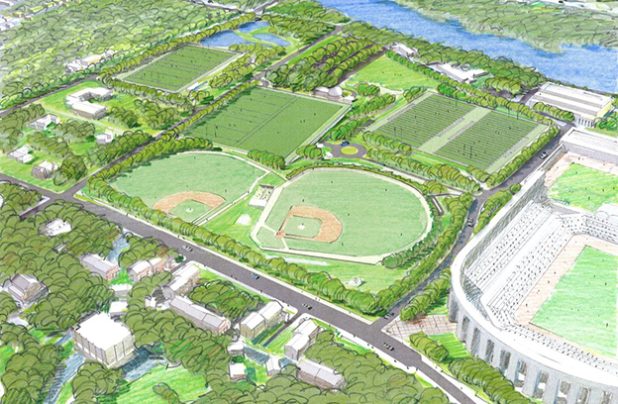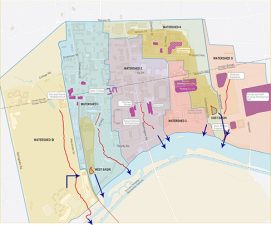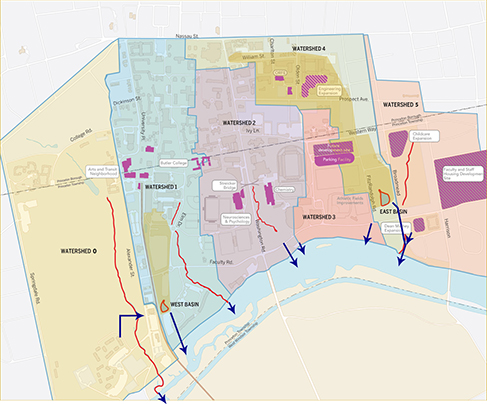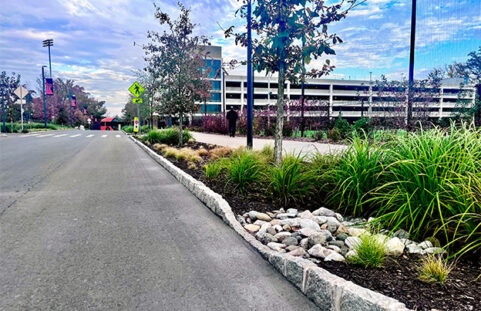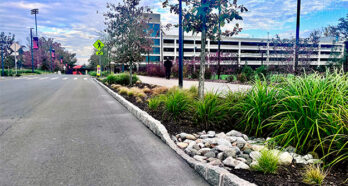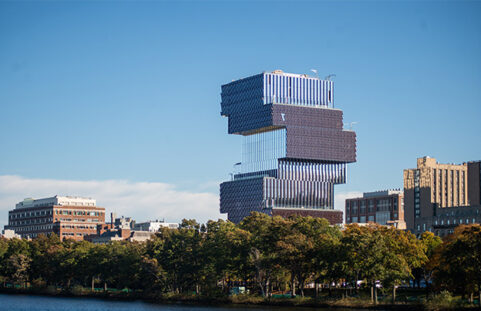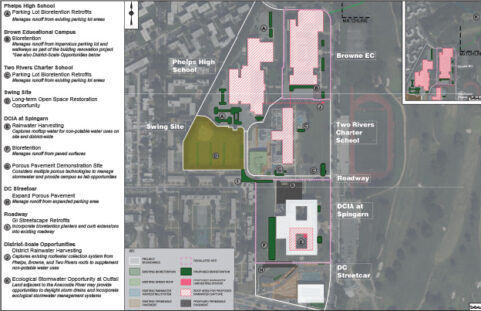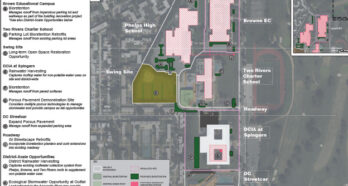Nitsch’s initial involvement with Princeton University was during the development of the 2016 Campus Plan (developed in 2006-2008). The goal of the Campus Plan was to develop a comprehensive approach to support the University’s ambitious academic expansion while preserving the historic beauty, walkability, and sustainability of the campus. We worked closely with the project team to develop a framework for managing stormwater as an integral component on the campus landscape and ecology.
The 2016 Campus Plan began a new era for stormwater management at Princeton. The Campus Plan’s stormwater strategy established goals and strategies for project- and district-scale stormwater management targeted at restoring sites (not just minimizing impacts). The strategies focused on addressing water balance and utilizing landscape-integrated strategies to absorb and infiltrate, evaporate, and reuse stormwater instead of allowing it to run off. Combined with landscape and ecological restoration projects, the intent of the Stormwater Plan was to begin the long process of repairing the historic degradation of the campus watersheds, which is most evident in the stressed stream channels.
Nitsch also developed supplemental guidelines for small projects on Princeton’s campus. The Stormwater Guidelines for small projects set a series of targets and design approaches for projects that do not fall under the purview of the Campus Plan (such as maintenance yards and parking lots). This helped the University ensure that all campus development supported the University’s over-arching goals of responsible watershed management and ecological restoration.
Since 2006, over 21 projects have been implemented on campus that align with the Campus Plan Stormwater goals. On each project, Nitsch has provided the planning, consulting, and/or design services for the implementation of stormwater management on these projects. The Campus Plan projects have redeveloped and integrated landscape-based stormwater management approaches into approximately 100 acres of projects on the Main Campus. These projects provided new academic, research, athletic, parking, and maintenance space on campus while minimizing their impervious footprint through implementing a landscape-based stormwater approach to treat stormwater from the impervious areas which received little to no treatment prior to redevelopment. Improvements include bioretention areas, green roofs, porous pavement, sub-surface infiltration, and rainwater harvesting systems that minimize stormwater runoff and instead promote infiltration, evaporation, and reuse.
In 2015, Princeton embarked on its most ambitious planning project in the history of the Campus, the 2026 Master Plan. Under this plan, Nitsch has continued our role of collaborating with regards to stormwater. Our current work includes even more ambitious approaches to addressing stormwater through landscape and ecological systems at the project-, district-, and campus-scale.
Key Collaborators
Owner: Princeton University
Planners: Beyer Blinder Belle Architects and Planners (2016 Campus Plan); Urban Strategies (2026 Master Plan)


